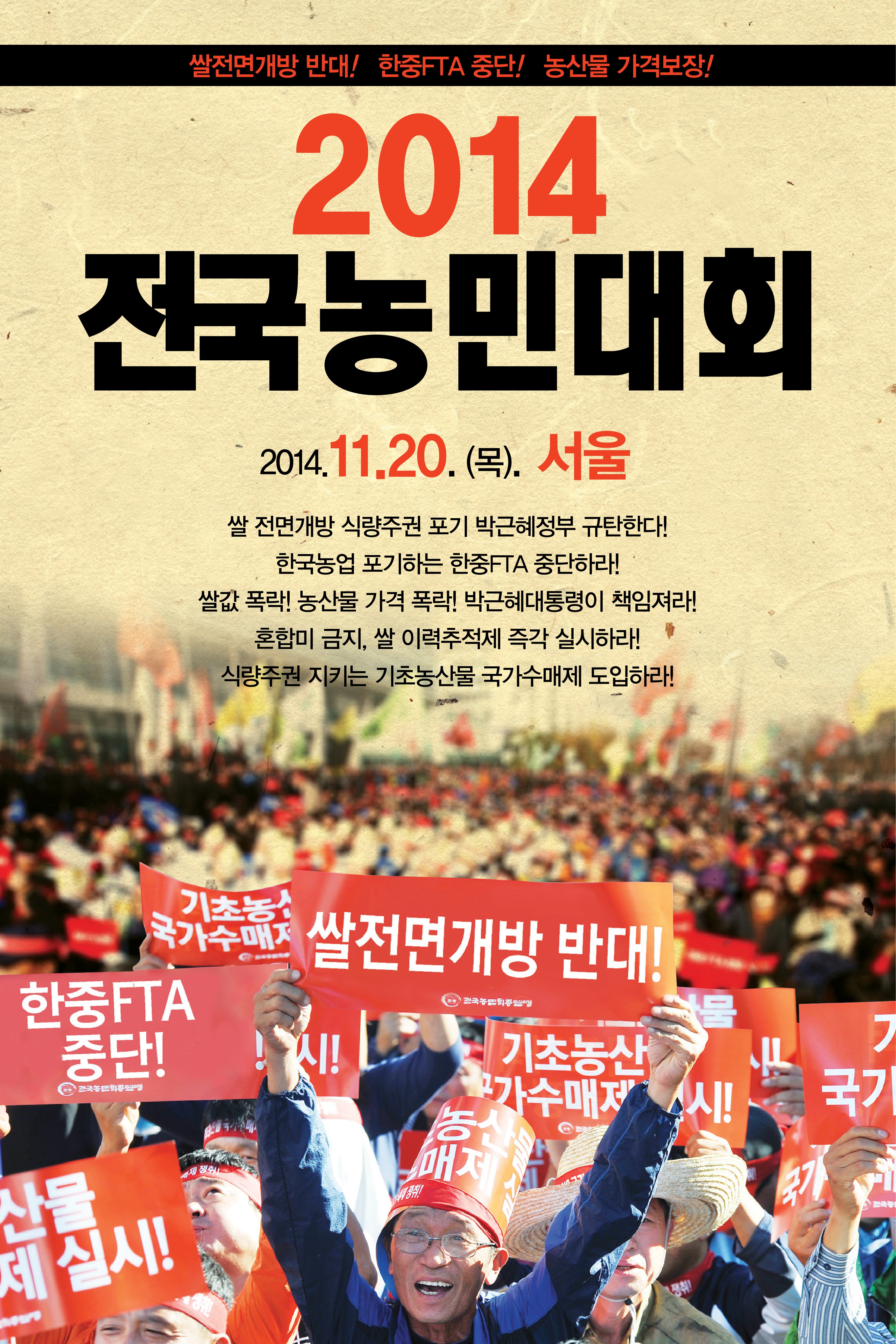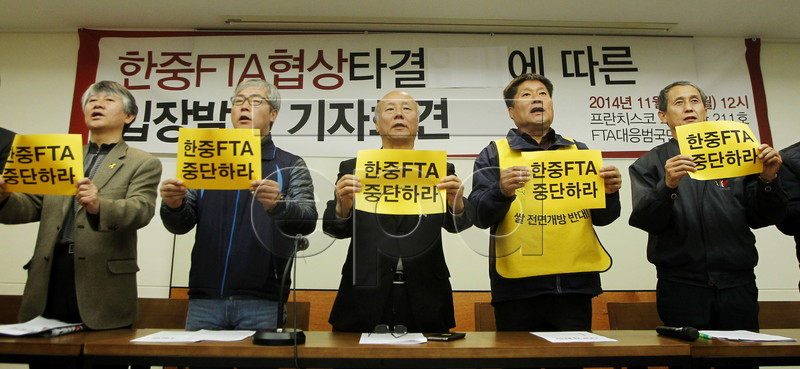China, South Korea sign ’substantial conclusion’ of free trade deal
Reuters | Mon Nov 10, 2014
UPDATE 2-China, South Korea sign ’substantial conclusion’ of free trade deal
– All issues cleared; legal, parliament reviews left
– Agreement excludes rice, automobiles -S.Korean govt
– S.Korea farmers group oppose FTA as a "nuclear bomb"
– Deal covers 17 areas including e-commerce - Xinhua
– Chinese, S.Korean presidents sign deal in Beijing (Updates with details from South Korea’s government briefing)
By Megha Rajagopalan and Meeyoung Cho
BEIJING/SEOUL, Nov 10 (Reuters) — Chinese and South Korean leaders on Monday signed a "substantial conclusion" of a free trade agreement that will sharply reduce barriers to commerce between the two trading giants, but leaves in place those on rice and automobiles.
South Korea says the deal, which the neighbours negotiated for more than two years, will help its small and medium-sized producers of clothing, leisure goods and high-end electronics become competitive in China, thanks to the slashing of Beijing’s import tariffs.
China is the world’s largest exporter and South Korea ranks seventh.
Chinese President Xi Jinping and South Korean President Park Geun-hye signed the deal, which cleared all the bilateral trade issues and now faces legal and parliament reviews in the two countries.
China’s Xinhua news agency said the agreement covers 17 areas including online commerce and government purchasing.
Woo Tae-hee, South Korea’s assistant minister for trade and chief free trade agreement (FTA) negotiator, said Seoul focused on small and medium-sized business opportunities in China instead of matured markets such as for steel and petrochemicals.
Lee Hang-koo, a senior researcher at state-funded Korea Institute for Industrial Economics & Trade, said the exclusion of cars is welcome news for country’s car and auto-parts makers.
"They were concerned about the potential flooding of Chinese-made products into the country for the long term," he said.
Even though the bilateral agreement also excludes rice - in line with Seoul’s insistence on protecting its domestic industry - there are doubts that South Korea’s parliament will swiftly approve the pact.
Many South Korean farmers’ groups oppose the deal. The Korean Peasants League on Monday likened it to a "nuclear bomb" for the industry.

BILATERAL TRADE BOOM
In 2013, South Korea had a $3.8 billion deficit in its agriculture, forestry and livestock trade with China, according to government data.
This deal comes as South Korea has yet to decide whether to join the United States-initiated Trans-Pacific Partnership pact, aimed at slashing trade barriers between a dozen countries.
The agreement with South Korea will be China’s ninth bilateral FTA. It hopes to also sign one with Australia before the end of this year.
China and South Korea normalised diplomatic relations in 1992 and bilateral trade grew 36-fold to $228.92 billion in 2013 from $6.38 billion in 1992, South Korea’s data shows. South Korea has been running a trade surplus with China since 1993. In 2013, the surplus was $62.8 billion.
Analysts in Seoul have said the deal would have only a limited direct boost to bilateral trade or economic growth but would help South Korea strengthen ties with China, the sole major ally of North Korea.
The two Koreas remain technically at war after their 1950-53 war ended in a truce and China is the host of six-party talks aimed at diffusing tensions over Pyongyang’s nuclear development ambition. The talks, which involve the United States, Russia and Japan, have been stalled for years.
(Reporting by Meeyoung Cho and Choonsik Yoo in SEOUL and Megha Rajagopalan and Ben Blanchard in BEIJING; Additional reporting by Jack Kim, Hyunjoo Jin and Brian Kim in SEOUL; Editing by Richard Borsuk)






